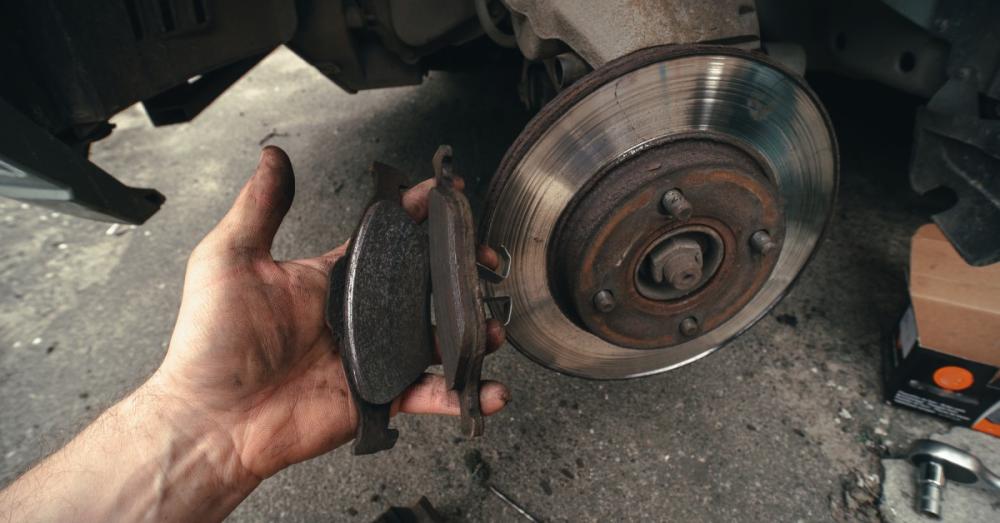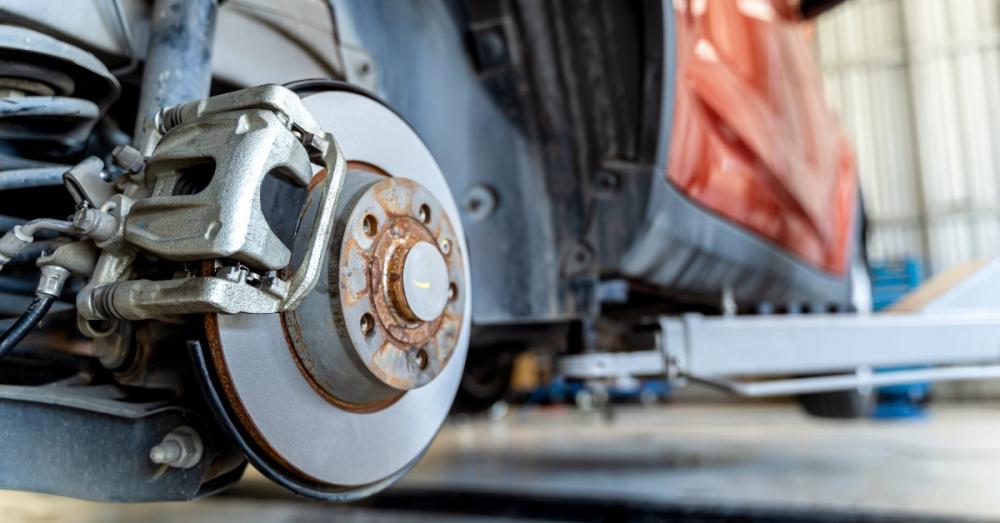Brake pads are easily one of the most important components of a vehicle. Think of them as your car’s emergency heroes that keep you safe every time you need to stop quickly. While they’re not involved in getting your car to move, they’re quite crucial if you plan on stopping. To do this, your pads will grind against the rotors they’re attached to and bring your vehicle to a halt. However, because of how this works, your brake pads will wear out over time, leading to the eventual need for replacements.
When this time comes, one thing that many drivers will notice is that their front brake pads have worn out quicker than their back ones—and this isn’t a defect. In fact, it’s completely normal. If you’d like to learn why front brakes tend to wear out faster than back ones, then this guide is here to help you out.
Why Front Brakes Tend to Wear Out Faster

While some people might get lucky and have both their front and back brakes wear out evenly, this is rarely the case. Many of you will need to replace your front ones first.
Heavier in the Front
To start, almost every car on the road right now is heaviest in the front. This is mainly due to the weight of engines. While some car companies try to redistribute the weight of their vehicles to even things out, it’s not really possible to make a car perfectly balanced between the front and rear.
On top of that, many cars will only have people in the front during most drives. If you commute on your own or only drive around with one other person, the weight of the people in your vehicle will always be in the front. While this seating arrangement won’t outweigh the engine, it adds enough to make some level of impact on your brakes.
So, how does all of this affect your brakes? Well, since the front of your vehicle is so heavy, the added weight puts extra strain on your front brakes. That means your front brakes will need to clamp down more to slow your vehicle at a desirable rate. While your back brakes still help with this, the front brakes will take the brunt of the pressure. The engine weight and how you sit aren’t enough to destroy your brakes after a few days of driving. However, the difference will add up over time and lead your front brakes to wear out quickly.
Shifting of Weight and Force
However, this problem gets exacerbated by the fact that every time you brake, you’re actually adding more pressure to the front of your vehicle. This comes down to simple physics. When an object is in motion, it wants to stay in motion. By applying the brakes, you’re bringing it to an unnatural halt. That means your vehicle is still trying to move forward while your brakes work to stop it in its tracks.
This leads to your vehicle shifting its weight forward, adding even more force to the front of your vehicle. Added to the weight that’s already there, your front brakes take on even more pressure, leading to them working harder to stop your car and wearing out much quicker.
They Lock Up First
The final reason why your front brakes might wear out faster than your back ones is that the front brakes will lock up before your back ones do. While having your brakes lock up isn’t ideal, it’s something that can happen if you ever need to brake harder than normal. For many vehicles, the front ones will lock up first to help you maintain control. When the back brakes lock up, controlling your vehicle becomes much more difficult.
That means if you brake hard too often, you’ll wear out your front brakes faster. When your brakes lock up, you’re applying max pressure to them. Doing this too often will lead to them wearing out at a faster rate than normal, so be sure to avoid hard braking when possible.
Pro Tip: Smooth, gradual braking not only preserves your brake pads but also helps you maintain better vehicle control.
Why Your Rear Brakes Might Wear Out Quicker

Even though most people experience their front brakes wearing out quicker, times when the opposite is true. Some drivers report having to replace their back brakes sooner than their front ones. While this is uncommon, there are a couple of reasons why this might happen, so it’s good to be aware of them.
More Weight in the Back
While most cars are front-heavy, there are exceptions to this rule. This issue can occur for people who load up the back of their vehicle with heavy equipment. That means those who drive trucks and larger cargo vehicles have the chance to wear out their back brakes quicker than their front.
Outside of that, the only cars that might experience this issue are a select group of sports cars. This is because some models have their engines in the back of the vehicle. However, this is quite rare, so a majority of drivers will never have to worry about this.
Vehicle Has Stability Control
Even though more weight in the back of a car can cause the back brakes to wear out faster, that’s not always the cause. This is due to a new feature in some vehicles known as stability control. Through the use of high-tech sensors, some modern vehicles have the ability to detect when a car is losing control and automatically apply the back brakes to help the driver regain control. This technology stabilizes the car, allowing the driver to keep their vehicle on the road more easily.
A side effect of this is that your back brakes will now wear out quicker, as they’re the only ones activating to stop your vehicle in some instances. If stability control turns on enough times throughout the life of your vehicle, your back brakes will need more frequent replacements.
What To Do When Your Brakes Wear Out
In the end, whether it’s your front or back brakes that wear out first, replacement will be mandatory once they do. If there’s little to no padding left, your car isn’t going to be able to stop nearly as effectively as it used to, which can be quite dangerous. For many vehicles, this will be when the pad is at about 2mm left in thickness. However, it’s best to check with your manufacturer’s recommendations.
Either way, when it’s time to get new brake pads, WheelerShip is here to help. We have a wide variety of front and rear brake pads available on our site. Regardless of which ones wear out first, or in the rare case you need to replace both, we’ll have just what you’re looking for. For best performance, we recommend professional replacement alongside new rotors.
